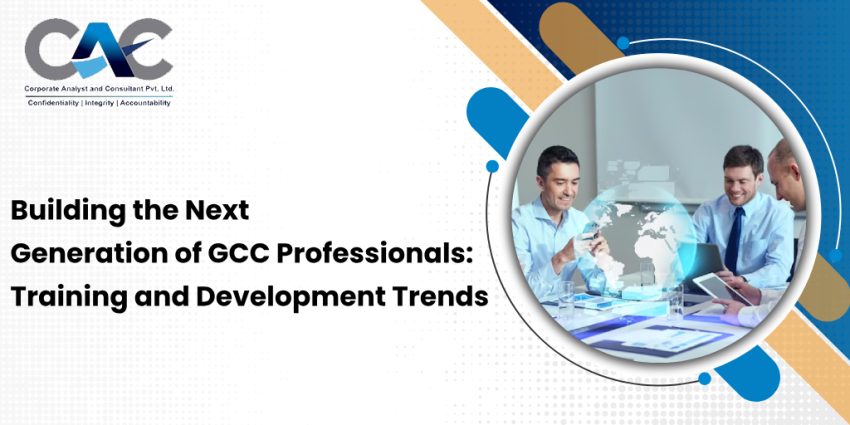The issue of developing highly skilled and future ready workforce has emerged as one of the principal areas of focus given that Global Capability Centers (GCCs) are increasingly expanding their operations to India and other emerging markets. These facilities are no longer mere offshore support structures but are being used strategically to input in innovation and data analytics, digital transformation and high value diverse processes. Such a change requires the new generation of professionals in the area with new knowledge, digital literacy, and leadership skills. Institutions and organizations on their part are engaging in active training and development programs to match these needs.
The Shift in Talent Strategy
In the past, majority of the Global Capability Centers (GCCs) were concerned with recruiting talent who can easily fit in the operational roles. However, the expectation has changed now as per today. Employers are seeking individuals that are able to deliver business results and think critically and assume ownership of multiple functions. This has brought about change in approach to training.
Institutions are also coming up with structured training programs with emphasis on core business functions as well as on new fields like automation, data science, and customer experience. The focus of the in-house training involves not only the development of technical competencies, but also managers and outstanding knowledge of the business.
Key Trends in Training and Development
Customized Learning Paths
Personalized training journey is one of the biggest trends. Instead of following a one-fits-all method, schools are providing learning modules that meet the experience levels and career options. Basic training is offered to early career representatives, and advanced modules on strategy, risk, and compliance or innovation management are offered to mid-range employees.
Digital Learning Platforms
As hybrid and remote work models have increased, so have employee learning digital platforms. The mlearning, webinars, and e-learning platforms are currently popular to provide flexible training materials. The institutions are also integrating real time testing and feedback to check progress and to make learning more effectual.
Partnerships with Universities and EdTech Firms
The partnership between Global Capability Centers (GCCs) and educational institutions as well as EdTech platforms has been on the rise to help them keep up with the requirements of the industry. These relationships are explored to co-develop curriculum and provide certification programs that focus on the areas of Artificial Intelligence, cybersecurity, digital finance, and project management. This is to facilitate the training that is not only relevant but also recognized globally to the employees.
Focus on Soft Skills and Leadership
In addition to technical skills, soft skills training have gained prominence. Communication, adaptability, problem-solving, and people management are now considered essential skills. Leadership development programs are being launched to build a strong pipeline of future leaders within GCCs, especially from local talent pools.
Continuous Learning Culture
GCCs are promoting a culture of continuous learning, where professional development is encouraged at every stage of an employee’s career. Learning credits, peer-to-peer training, internal knowledge sharing, and mentorship are being adopted to support this approach. Institutions recognize that employee growth directly impacts business agility and performance.
The Role of Institutions and HR Leaders
Institutions working with GCCs—be it academic bodies, learning consultants, or corporate trainers—are playing a proactive role in understanding evolving business models and aligning training offerings accordingly. They are conducting regular skills gap analyses and industry studies to refine learning content.
HR leaders within GCCs are also taking charge of talent transformation strategies. Many have set up in-house academies or centers of excellence for employee training. These initiatives often include boot camps, rotational programs, and simulations that prepare employees for real-world challenges.
Looking Ahead
As Global Capability Centers (GCCs) continue to evolve into innovation hubs, the need for highly skilled and adaptable professionals will only grow. Institutions that invest in comprehensive training and development frameworks are likely to see stronger employee retention, better performance, and faster business growth.
Conclusion
Building the next generation of GCC professionals requires a focused and ongoing investment in learning. From digital platforms and academic partnerships to leadership development and soft skills training, institutions are reshaping their training strategies to match the changing business landscape. These efforts are not only enhancing employee capabilities but also ensuring the sustained success of Global Capability Centers (GCCs) in the global economy.

















